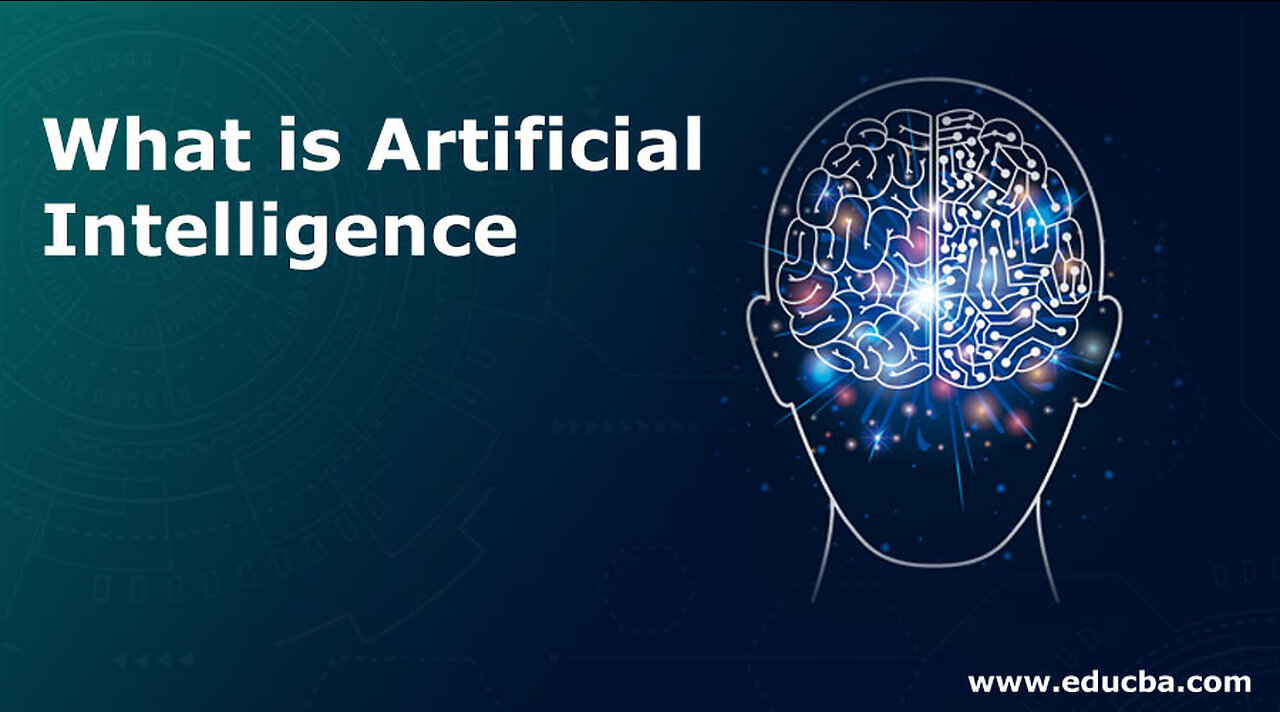Premium Only Content

What is AI? Artificial Intelligence Explained || AI history, how it works.
What is AI? Artificial Intelligence Explained || AI history, how it works, and its benefits
What is AI? Artificial Intelligence Explained || AI history, how it works, and its benefits
So, what exactly is Artificial Intelligence? In simplest terms, AI refers to computer systems that can perform tasks that usually require human intelligence, such as speech recognition, decision-making, and problem-solving. The field of AI has been around for decades, with the first AI program being written in the 1950s.
AI can be divided into two main categories: narrow or weak AI and general or strong AI. Narrow AI refers to systems that are designed to perform specific tasks, such as voice assistants like Siri or Alexa, or image recognition software. In contrast, general AI refers to systems that can perform any intellectual task that a human can. However, general AI is still largely in the realm of science fiction and has not yet been achieved.
One of the main drivers of AI development has been the availability of data and computing power. With the exponential growth in the amount of data generated every day, AI algorithms have become more advanced and accurate. Additionally, the development of powerful computers and cloud computing technology has enabled the processing of large amounts of data in real-time.
AI has many applications across various industries, including healthcare, finance, and transportation. For example, AI can be used to develop predictive models for medical diagnosis, improve financial forecasting, and enhance self-driving car technology. In healthcare, AI can help to improve patient outcomes by identifying patterns in medical data and developing personalized treatment plans.
One of the primary benefits of AI is its ability to automate repetitive and time-consuming tasks, allowing humans to focus on more complex and creative work. AI can also help to improve efficiency and accuracy in many industries, leading to cost savings and improved productivity.
However, there are also concerns surrounding the use of AI. One major concern is the potential for job displacement, as AI is increasingly used to automate tasks previously done by humans. There are also concerns surrounding the ethical implications of AI, such as bias in decision-making algorithms and the potential for AI to be used for malicious purposes.
Another area of concern is the potential for AI to surpass human intelligence, leading to the development of super intelligent machines that could pose a threat to humanity. This concept is known as the "singularity" and is a topic of debate among experts in the field.
Despite these concerns, the development and use of AI continues to grow rapidly. As AI technology continues to evolve, it is important for individuals and organizations to stay informed and educated on its applications, benefits, and potential risks.
In conclusion, artificial intelligence is a rapidly evolving field with many applications and benefits across various industries. However, there are also concerns surrounding its use, such as job displacement and ethical implications. As AI continues to evolve, it is important for individuals and organizations to stay informed and educated on its potential impacts. Thank you for listening to today's video on artificial intelligence.
#trending #artificialintelligence #technology #technical #artificalintelligence
Keyword
ai history how it works and its benefits
artificial intelligence
ai
machine learning
history of ai
history of artificial intelligence
history of machine learning
artificial intelligence robot
-
 0:39
0:39
OfficialJadenWilliams
4 days agoRealizing you're stuck in the Back Rooms
3.22K -
 9:14
9:14
The Art of Improvement
1 day ago $0.17 earnedHow to Stop Overthinking
3.19K -
 8:33
8:33
Damon Imani
16 hours agoDamon OBLITERATES Everyone On The View For 8 Minutes Straight! | Compilation Vol.16
3.56K4 -
 18:08
18:08
Actual Justice Warrior
21 hours agoMamdani CRIES Victim After Eric Adams Drops Out
16.5K16 -
 23:08
23:08
DeVory Darkins
1 day ago $13.41 earnedDemocrats STUNNED by Trump meeting as Omar EMBARRASSES after shocking statement
20.9K94 -
 2:17:10
2:17:10
qixso
14 hours ago $3.49 earnedBO7 ON THE WAY !
28.4K4 -
 2:07:47
2:07:47
Side Scrollers Podcast
20 hours agoHasan SCARED To Attend Twitch Con + EA Devs CRASH OUT Over Saudi Sale + More | Side Scrollers
31.6K4 -
 15:10
15:10
GritsGG
15 hours agoInsane Regain Dubular on Warzone Duos w/ Bobby Poff!
14.2K -
 2:48:00
2:48:00
BlabberingCollector
1 day agoReacting To Emma Watson / Jay Shetty Interview, Reading JKR Tweets!
13.9K5 -
 17:52
17:52
The Pascal Show
1 day ago $5.91 earned'PARENTS DON'T BELIEVE HE DID IT!' Candace Owens Says Tyler Robinson's Parents Don't Think He Did It
29.9K30